What Do Mozart and Henry Ford Have in Common? – the Freemason in Vienna
In the intricate web of history, Mozart and Henry Ford are like distant stars in the night sky, seemingly unconnected yet sharing a mysterious bond that transcends time. As the veil of secrecy surrounding Freemasonry in Vienna is lifted, a fascinating narrative emerges, weaving together the lives of these two iconic figures.
Through the lens of this enigmatic society, the hidden ties that bind Mozart and Ford come to light, shedding new insight on their legacies and contributions to the world. Join this exploration of hidden histories and intertwined destinies, where the echoes of Freemasonry resonate in the symphonies of Mozart and the innovations of Ford.
Key Points
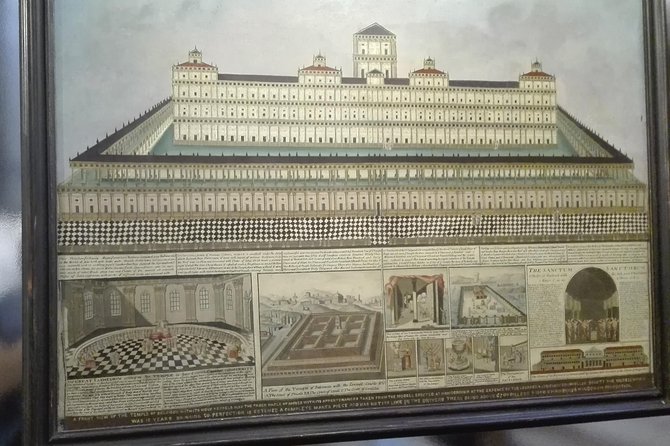
- Mozart and Henry Ford shared Freemasonry influence in their beliefs and actions.
- Freemasonry shaped Vienna’s cultural and intellectual heritage, impacting figures like Mozart and Ford.
- Both Mozart and Ford reflected Masonic values of enlightenment, brotherhood, and ethical practices.
- Freemasonry’s symbolic elements influenced music, art, and societal contributions of individuals like Mozart and Ford.
Mozart and Freemasonry
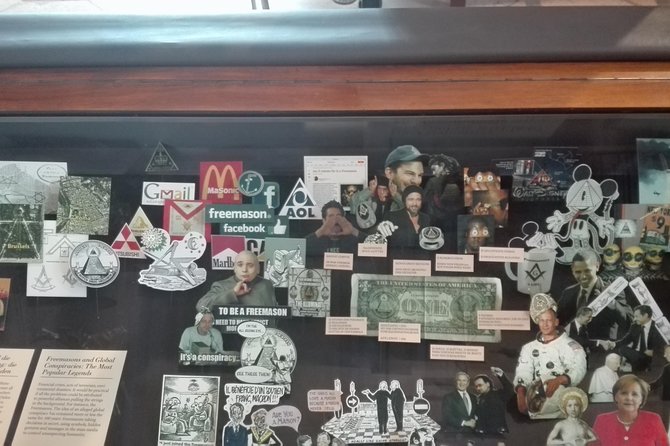
Mozart’s affiliation with Freemasonry greatly influenced his musical compositions and personal beliefs. The secret rituals and symbolism of Freemasonry provided Mozart with a deep well of inspiration for his work. Themes of enlightenment, brotherhood, and moral virtues prevalent in Freemasonry can be seen woven into Mozart’s music, adding layers of meaning and complexity.
The sense of mystery and the pursuit of hidden knowledge that characterized Freemasonry secrets resonated with Mozart, driving him to explore new musical territories and push boundaries. This influence can be observed in pieces like ‘The Magic Flute,’ where themes of enlightenment and self-discovery mirror the values of Freemasonry.
Mozart’s connection to Freemasonry not only shaped his music but also his worldview and artistic expression.
Henry Ford’s Freemason Connection
Henry Ford’s involvement with Freemasonry offers a fascinating glimpse into how this secret society influenced not only his personal beliefs but also his approach to business and innovation. Ford’s legacy in modern Freemasonry can be understood through several key points:
-
Influence on Ethical Business Practices: Ford’s Masonic beliefs emphasized ethical conduct, which likely influenced his business practices.
-
Commitment to Brotherhood: Freemasonry’s emphasis on brotherhood and community likely played a role in Ford’s efforts to improve the welfare of his workers.
-
Innovation and Creativity: The Masonic principles of seeking knowledge and personal growth may have fueled Ford’s innovative spirit.
-
Legacy of Philanthropy: Ford’s philanthropic endeavors, such as the Ford Foundation, may reflect the Masonic value of charity and giving back to society.
Vienna’s Freemason Heritage
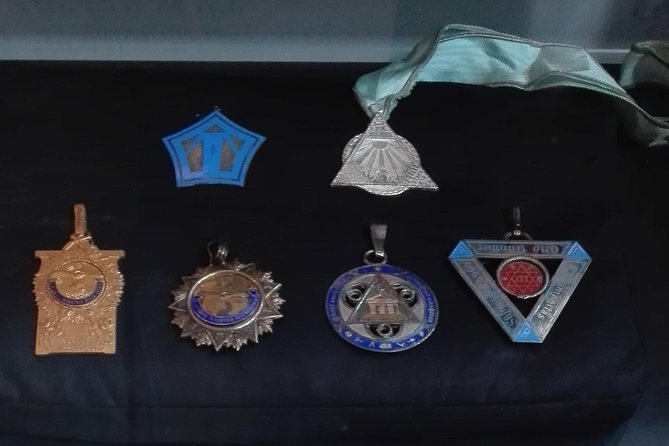
Vienna boasts a rich Freemason heritage deeply intertwined with its cultural and musical tapestry. Freemasonry in Vienna dates back centuries, with the city serving as a prominent hub for Masonic activities.
Freemason rituals were conducted in grand lodges, where members gathered to engage in philosophical discussions, moral teachings, and symbolic ceremonies. The influence of Freemasonry in Vienna extended beyond the secretive rituals, shaping the city’s intellectual and artistic landscape.
Many influential figures in Vienna’s history, including composers, artists, and intellectuals, were part of the Freemason community. This influence can still be seen today in the city’s architecture, music, and cultural traditions, highlighting the lasting impact of Freemasonry on Vienna’s heritage.
Freemasonry Influence on Mozart
Influenced by the tenets of Freemasonry, Mozart’s compositions resonated with symbolic depth and philosophical nuances, reflecting his deep connection to the Masonic ideals.
-
Musical Allegory: Mozart often wove Masonic symbols and teachings into his music, creating layers of meaning for those attuned to Freemason secrets.
-
Brotherhood Themes: His operas, such as ‘The Magic Flute,’ explored themes of brotherhood, enlightenment, and moral virtues, mirroring Freemasonry’s core principles.
-
Symbolic Compositions: Mozart’s use of musical codes and symbols reflected the esoteric nature of Freemasonry, inviting listeners to explore hidden meanings.
-
Masonic Influence: The rituals, values, and symbolism of Freemasonry profoundly impacted Mozart’s creative process, shaping his works with a touch of Masonic mystique.
Freemasonry in 18th Century Vienna
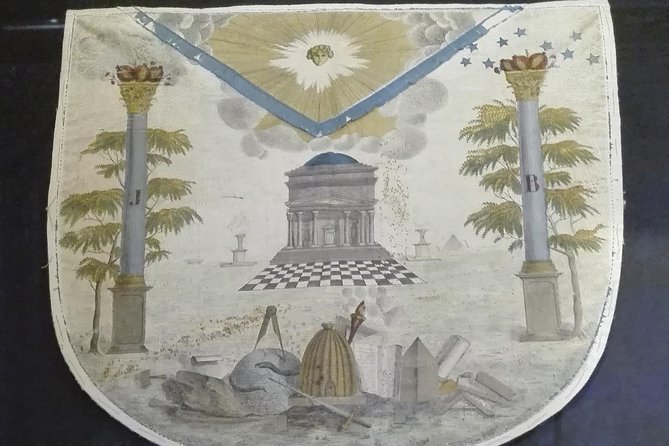
During the vibrant cultural landscape of 18th-century Vienna, Freemasonry flourished as a prominent societal force, shaping the intellectual and artistic pursuits of its members.
Freemason architecture in Vienna during this period reflected the ideals of the Freemasons, incorporating symbolic elements into buildings that were designed to foster a sense of unity and enlightenment among members.
The lodges where Freemasons gathered weren’t only places for meetings but also served as centers for philosophical discussions and social activities.
Freemason rituals were an essential aspect of the Vienna lodges, with ceremonies and practices aimed at promoting morality, brotherhood, and personal development.
These rituals were conducted with a sense of solemnity and reverence, emphasizing the values that Freemasonry sought to instill in its members.
Freemason Symbolism in Music
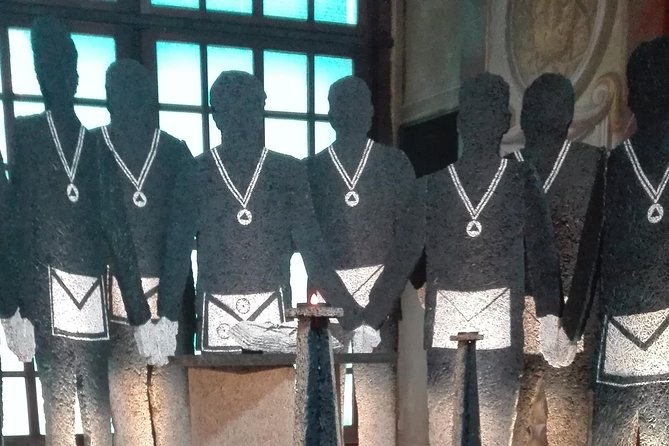
Exploring the intricate connections between Freemasonry and music reveals a rich tapestry of symbolism woven into the compositions of renowned composers like Mozart and the influences it had on their creative expressions.
-
Musical symbolism: Freemasonry often incorporated symbolic elements into music, such as using specific musical motifs to represent Masonic ideals.
-
Historical influence: Freemason culture left a lasting imprint on the music of the time, influencing the themes and messages conveyed through compositions.
-
Spiritual depth: Composers embraced Freemasonry’s spiritual aspects, infusing their music with profound meanings and esoteric references.
-
Unity and brotherhood: Music composed under Masonic influence often aimed to promote unity, brotherhood, and moral enlightenment among listeners.
Freemasonry and Innovation

The connection between Freemasonry and innovation reveals a fascinating interplay of traditional values and forward-thinking creativity in various fields. Freemasonry has long been associated with fostering creativity and pushing the boundaries of conventional thinking. In the realm of technology, Freemasons have been pioneers, embracing new ideas and advancements.
The principles of Freemasonry encourage members to think outside the box, leading to innovations that have shaped industries worldwide. Whether in architecture, science, or art, Freemasonry has provided a platform for individuals to unleash their creative potential. This dedication to creativity and exploration has led to groundbreaking developments that continue to impact society.
Through a combination of ancient traditions and a thirst for progress, Freemasonry remains a driving force in nurturing innovation across diverse disciplines.
Legacy of Freemasonry in History
In the annals of history, the legacy of Freemasonry stands as a testament to the enduring influence of this ancient fraternity on shaping societal norms and cultural paradigms.
-
Historical Significance: Freemasonry has played a pivotal role in the development of democratic ideals and the spread of enlightenment principles.
-
Cultural Influence: The symbolism and rituals of Freemasonry have inspired artists, writers, and thinkers across the globe.
-
Modern Applications: The values of brotherhood, charity, and personal growth espoused by Freemasonry continue to resonate in contemporary society.
-
Global Impact: Freemasonry’s presence can be seen in diverse regions worldwide, fostering a sense of unity and shared values among members.
Common questions
What Specific Rituals or Practices Did Mozart Participate in as a Freemason?
Mozart’s initiation into Freemasonry involved symbolic rituals emphasizing brotherhood and enlightenment. He integrated Masonic symbols and principles into his music, reflecting his belief in universal unity. These influences impacted his compositions, creating a social and cultural legacy.
How Did Henry Ford’s Involvement in Freemasonry Impact His Business Practices or Innovations?
When exploring Henry Ford’s involvement in Freemasonry, one discovers a fascinating link between his business practices and Masonic principles. Ford’s innovations were influenced by the organization’s values of brotherhood, integrity, and continuous improvement, shaping his successful ventures.
Are There Any Notable Freemason Lodges or Buildings in Vienna That Are Connected to Mozart or Henry Ford?
In Vienna, Freemason architecture stands as a testament to Mozart’s legacy in Freemasonry. Notably, the city boasts several lodges and buildings linked to influential figures like Mozart and potentially Henry Ford, showcasing a blend of history and mystery.
What Influence Did Freemasonry Have on Mozart’s Compositions and Musical Style?
Masonic symbolism and musical influences shaped Mozart’s compositions, showcasing intricate connections to his Freemason beliefs. These elements infused his works with depth and symbolism, creating a unique musical style that resonates with listeners to this day.
How Did Freemasonry Contribute to the Cultural and Social Landscape of 18th Century Vienna Beyond Mozart’s Involvement?
In 18th-century Vienna, Freemasonry extended beyond Mozart, shaping social connections and cultural impact. Freemason influence permeated Vienna society, fostering a network of like-minded individuals dedicated to enlightenment ideals, supporting arts, education, and progressive social change.
Last Words
To sum it up, the intertwined legacies of Mozart and Henry Ford through Freemasonry offer a fascinating glimpse into the hidden influences that shaped their lives and works in Vienna.
The secretive brotherhood’s impact on music, innovation, and history is a testament to its enduring power and significance.
Through exploring these connections, we gain a deeper understanding of the profound influence of Freemasonry on two iconic figures who left an indelible mark on the cultural fabric of Vienna.